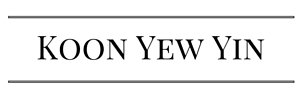The US is having the mid-term election currently. One politician said that there are more than 40 million Americans living below poverty line. As of March 2017, the U.S. debt is about $19.9 trillion; it amounts to $61,365 for every person living in the U.S.
China is US’ largest creditor. That is why the US President Donald Trump is declaring trade war with China and many other nations in the world.
Many of the western nations often complain that China is not democratic, abuses human rights and is a new imperial power threatening some of the developing economies in Asia and Africa.This perception is being promoted through the media by politicians, NGO and think-tanks of the West.
China’s achievements over the past 40 years have been phenomenal. The country’s rapid economic growth has driven per capita income from one of the poorest in the world to the level of an upper-middle income country. China is now the second largest economy globally and is approaching high-income country status.
Poverty levels in China have fallen significantly. While 250 million people in the rural area lived below the national poverty line in 1978, the figure fell to 30 million at the end of 2017. China is advancing toward its target of eradicating absolute poverty by 2020. And the government has committed to the Sustainable Development Goals.
China has progressed from an economy with basic agriculture and technology to a global manufacturing powerhouse. It is now transitioning to an economy driven more by consumption and services. China has become a front-runner in areas such as e-commerce and shared economies. New technologies and entrepreneurs are fostering the emergence of innovative industrial clusters.
Many western nations say that China is using its financial power to colonise some of the poor countries. They say that by giving out loans for development to poor countries China is snaring them in a debt trap. It is a trap that ensures that they are perpetually under China’s control. Is there such a debt trap?
A quick look at Africa will reinforce this view. The “majority of African debt is not held by China but by Western countries and such Western-backed institutions as the IMF and World Bank.”
Nonetheless, many African states have Chinese debt. This in itself is not a problem — provided loans are utilised for the public good. In this regard, infrastructure financing under the Belt and Road Initiative (BRI) — building ports, railways and fibre-optic cables — appears to be a major component of China’s involvement in Africa. The four billion-dollar Addis-Ababa-Djibouti Railway which began commercial operations earlier this year would be one such example.
What I have witnessed:
Another example which I have seen is the 3.2 billion Express railways between Nairobi and Mombasa in Kenya. The railway opens up a lot of land for agriculture development, thus creating a lot of employment. Moreover, people can export their produce easily.
Chinese ventures in Africa have been almost totally economic. The Chinese is only interested in the recovery of the continent’s natural resources. Unlike the Western Nations who colonised some of the African countries in the 19th Century, the Chinese never get involved in the local politics.
Labelling China as a new imperial or colonial power is part of that vicious propaganda against a nation, indeed a civilisation that has already begun to change the global power balance. It is a change towards a more equitable distribution of power that is in the larger interest of humanity.
Malaysia: In the case of our Malaysia, which witnessed a change of government in May 2018, major infrastructure projects funded by Chinese state companies could not be implemented because the nation is in a financial crunch. Besides, the projects were obviously lopsided favouring the Chinese companies more than their Malaysian partners. In announcing his decision, Malaysian Prime Minister, Dr.Mahathir Mohamad, made it very clear that the lop-sidedness was due more to the previous Malaysian government than its Chinese counterpart. The former Prime Minister Najib has taken a large portion of the contract sum.
